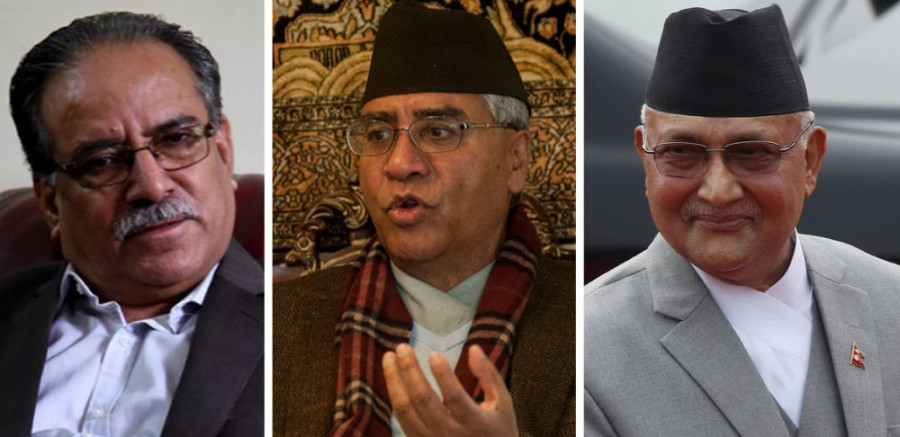Editorial
Holier than thou
Top political leaders can’t deflect queries about their conduct with base emotional appeals.
If there is one thing Prime Minister Pushpa Kamal Dahal has harped on time and again since he took office a year ago, it is the good-old rhetoric of sushashan, or good governance. Hardly a week passes by without the prime minister promising to curb corruption and punish the corrupt. But now, with the controversial exit of Axiata drawing the attention of Parliament's State Affairs and Good Governance Committee, the prime minister has himself come under the corruption radar.
Dahal has confessed to knowing Satish Lal Acharya, whose company has just purchased 80 percent of Ncell’s shares. Dahal said Acharya had hosted him in Singapore when he was in the country for his late wife’s treatment. He further claimed that there was no basis to claim that Acharya in any way benefited from their proximity. But he did not forget to drag his political counterparts, including Sher Bahadur Deuba and KP Sharma Oli, the top leaders of the Nepali Congress and the CPN-UML, respectively, into the Ncell buy-out mud. Yet Dahal was defensive when asked about the connection of his daughter and secretary, Ganga Dahal, with the sale of Ncell’s majority stake. Not only did Dahal claim the charges were aimed at tainting his family, he added for good measure that the allegations were intended at defaming democracy and republicanism. That is Pushpa Kamal Dahal at his manipulative best.
In fact, Nepali politicians have no qualms about using the victim card when fingers point at them or their family members. But to bring democracy and republicanism into the discussion when questions are raised about personal conduct is a bit too rich, even by the low standards of Nepali leaders. Our politicians have gotten away with equating themselves with the nation for far too long. In fact, conflating the individual with the nation has been the traditional modus operandi of leaders and their sycophants in much of South Asia, exemplified by the phrase “India is Indira, Indira is India” popular in the 1970s; or the terming of Mohandas Gandhi and Muhammad Ali Jinnah as “Father of the Nation” in India and Pakistan, respectively. What’s more, Sri Lanka’s Mahinda Rajapaksa proclaimed himself the “Father of a Victorious Nation” in the wake of a bloody win over the Tamil separatists in 2009.
The ability to give a “national” colour not only helps the individual leader hoist themselves up on the high pedestal of nationalism, it supposedly also helps them dodge difficult questions about their legal and moral standing. Oli and Deuba, the twin leaders Dahal linked with Acharya, the controversial buyer of Ncell, are as notorious for crying wolf when their moral integrity comes under question. Famous for his stubbornness, Oli has time and again claimed he had no business engaging in corruption as he has no children for whom he must save money. Deuba, as well known for his easy outbursts of anger, once shouted at a young engineer on a recorded television programme, so much so that the latter became a popular rival in his constituency. Deuba’s wife and fellow parliamentarian Arzu Rana, when asked about her alleged links to the fake Bhutanese refugee scam, swore in the name of her son, claiming that her family was poor.
Base emotional appeals do not suit national leaders, and no leader, however great, is equal or interchangeable with the nation, democracy or republicanism. They would do well to respond with more maturity and responsibility. These political leaders have been in public view for a long-long time. People see easily through their manipulation.




 18.12°C Kathmandu
18.12°C Kathmandu














